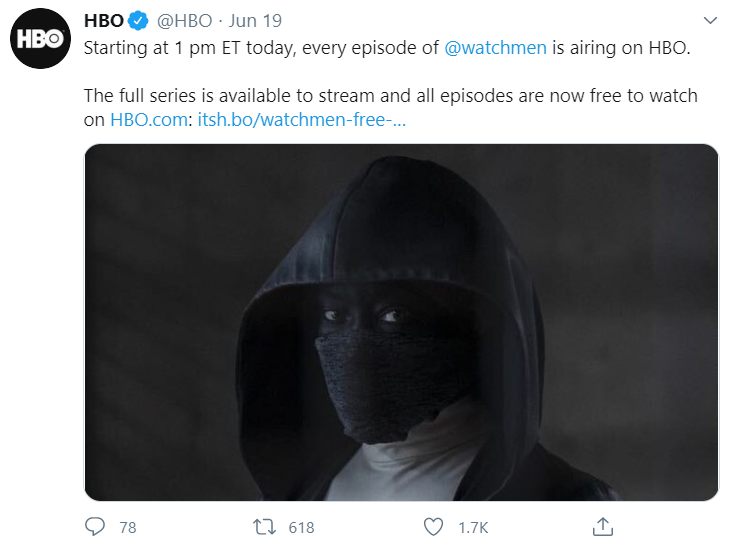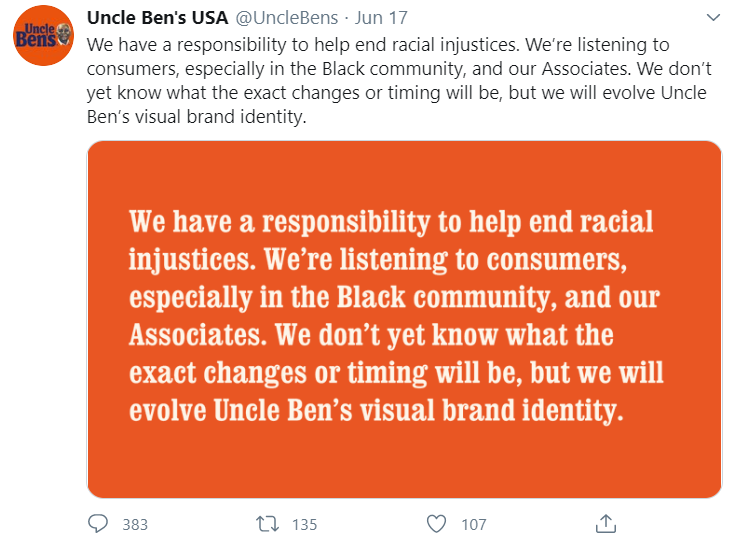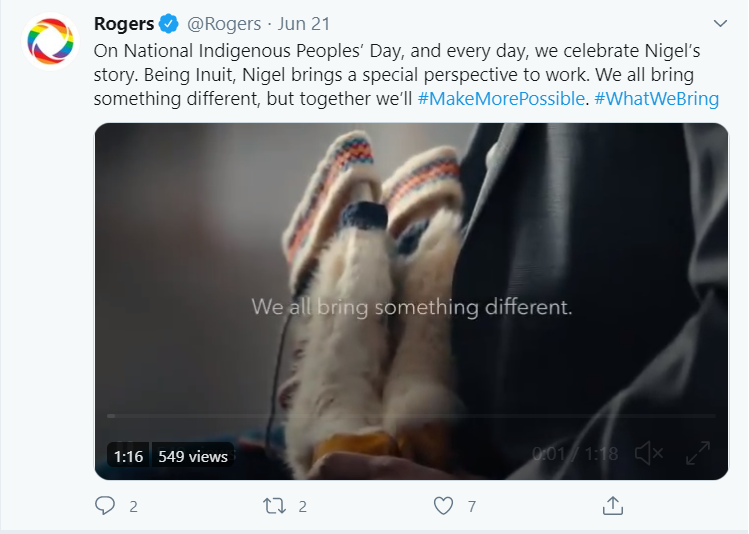[Series] Social responsibility amidst recovery: Black Lives Matter
In this series, our analysts discuss how brands are addressing and practicing social responsibility amidst recovery during the COVID-19 pandemic. This week, we take a look at how brands are taking sides with the Black Lives Matter movement staying strong, and calls for civil rights staying loud.
Connect
As brands stood up for what they think is right, they tried to create connection among their customers. Sometimes, the message was “We’re all in this together,” and sometimes, it was “We all should be in this together.” By fostering togetherness, brands could set the stage for looking ahead.
HBO made “Watchmen” and other shows available for free, dividing the content into categories for more nuance.
HBO split the content into categories, including “Random Acts of Flyness” and “Documentaries.” In the context of Black Lives Matter, those subtle distinctions among content helped direct viewers to the specific content they were looking for more than other services’ broader categories. That is, HBO made its collections seem more thoughtful by creating distinct groupings that showcased a diversity of thinking and creative approach among Black creators.
After Aunt Jemima said it would remove its image and change its name, Uncle Ben’s quickly followed suit.
Soon after Quaker announced it was getting rid of Aunt Jemima, the syrup caricature, Uncle Ben’s did the same. Cream of Wheat then said it would review its image too.
These decisions could help set a precedent against the kind of commercial racism too easily ignored by some. And that, in turn, could make it so things as simple as syrup and rice aren’t holding people apart from one another.
Anticipate
Brands encouraged consumers to look at the world around them—and the world in front of them. While it was often a social message, it was also occasionally a logistical one. In both cases, companies were setting expectations for what the world can—and should—look like.
Just as U.S. brands used history as a way to look towards the future on Juneteenth, so did Canadian brands, such as Telus, on National Indigenous Peoples Day.
Twitter will give its U.S. employees the day off to vote on Election Day.
Moving forward, all national election voting days will be paid days off, the company said in the staff email, a copy of which was provided to CNN Business. Employees around the world will also get paid time off to vote in their respective national elections, the company said.
Earlier this month, Twitter made Juneteenth a paid holiday. The June 19 holiday commemorates the end of slavery in the US, and a growing number of companies also gave employees the day off this year for the first time.
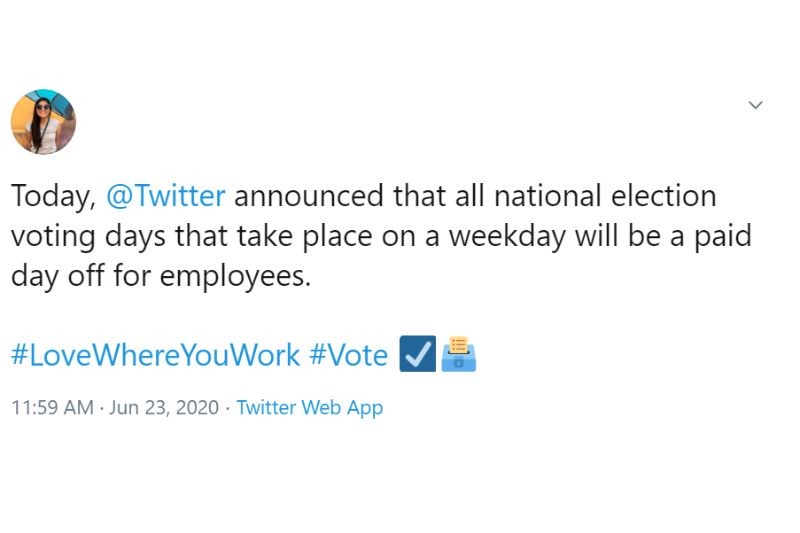
Cringe
Not all brands were successful when it came to fraught topics, like racism and policing in the U.S. The cringeworthy content seems to be a result of brands’ thirst for speaking to consumers as consumers speak to one another.
After coming under fire for its racist Juneteenth Lens, Snapchat took the feature down and apologized.
Users criticized the Lens, which had users “smile and break the chains” of slavery, for being insensitive and downright racist. That’s no surprise, as the public learns that many of the algorithmically generated features they rely on have been designed to be biased against people of color.
The company responded by taking the filter down and issuing an apology—an apology that came off as a bit defensive. Still the apology demonstrates an agile willingness to admit mistakes that’s important at a time when user feedback is so swift.
In the future, Snapchat and others can make sure to promote the provenance of their new features as they launch, making sure users understand the thought that went into them.
Facebook faces increased scrutiny, as advertisers boycott the platform amid calls from civil rights groups.
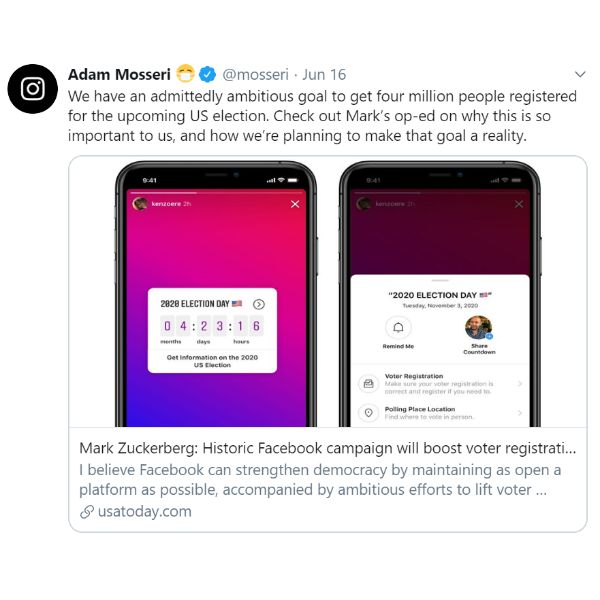
The Anti-Defamation League, NAACP, and others say that Facebook amplifies hate speech, allows posts that incite violence, and is complacent in the spread of misinformation. They are calling on brands to “pause” on Facebook ads during the month of July.
Just a few months before Nov. elections, at the same time that Facebook is drawing criticism for keeping politicians’ misleading posts up, Facebook has said that it wants to get 4M people registered to vote.
What we think
How can brands stand up for what they think is right without it coming across as a marketing stunt?
Be proactive.
More than two-thirds of consumers say it’s important to them that the brands they buy from follow ethical business practices, according to Mintel research. So brands need to promote those very practices. That can translate to messaging about the specific kind of world brands want their customers to live in, not just a world that’s different from the unequal one of today. Such messaging can help attract consumers.
What’s more, when brands are proactive, they’re more efficient with their marketing budgets and can avoid wasting the time and resources they might if they were reactive. Brands can proactively promote their business practices with the kind of values-driven posts brands have traditionally steered clear of in fear of alienating some consumer groups. It’s time to take a stand.
